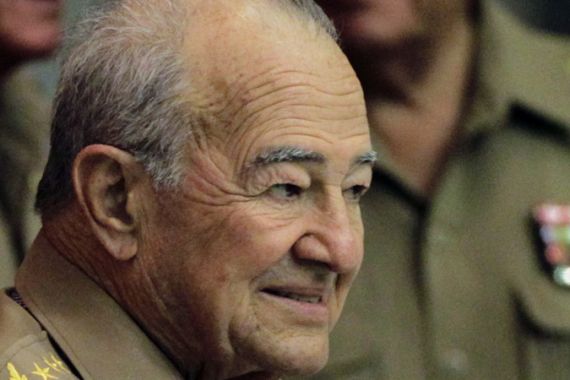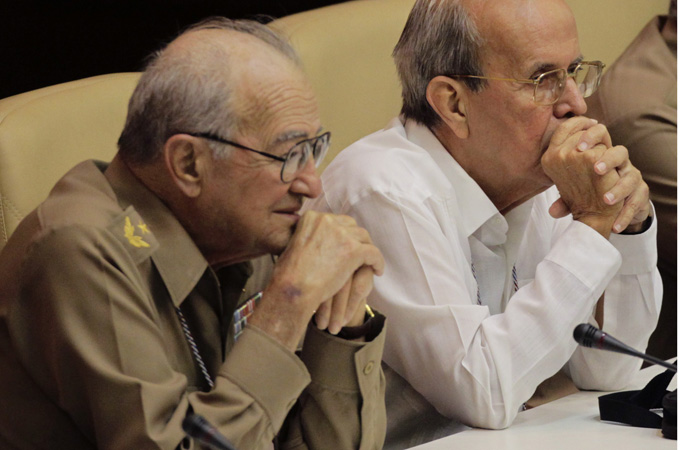Cuban defence chief dead at 75
Julio Casas Regueiro was an influential figure behind the scenes and a key ally of Cuban President Raul Castro.

 |
| Julio Casas Regueiro was one of Cuba’s five vice-presidents [REUTERS] |
Julio Casas Regueiro, one of Cuba’s most influential political figures who rose from the ranks of revolutionary fighters to become the country’s defence chief, has died at the age of 75.
Regueiro, who was a close ally and former comrade in arms of Cuban President Raul Castro, died of a heart attack in Havana, Cuban state media reported.
He was considered one of Cuba’s most powerful men, though his influence was wielded largely behind the scenes.
“He was known for his loyalty to the Party, to the people, to the Revolution, and to his commander-in-chief Raul Castro,” the ruling Communist Party’s politburo said in a statement.
“He made numerous contributions to strengthening (Cuba’s) defence,” the statement added.
Monday has been declared a national day of mourning for Regueiro who also served as a vice president of the Council of State, Cuba’s supreme governing body.
Regueiro’s body was cremated, according to his wishes, and his ashes were to be sent to a mausoleum in the Sierra Maestra mountain range in eastern Cuba for a ceremony with military honors, officials said.
Regueiro fought in Cuba’s 1959 revolution, joining Raul Castro’s unit at the age of 22. He worked closely for decades with Raul Castro, who served as military chief under his brother Fidel Castro’s long leadership of the country.
He was appointed military chief in 2008 when Raul replaced Fidel as Cuban leader.
As a military official, Regueiro was credited with pressing through some of Cuba’s political and economic reforms in the 1990s as the island sought to recover from the collapse of the Soviet Union, its key supporter during the Cold War.
They included creating new roles for the armed forces such as managing the Gaviota hotel chain to create a source of hard currency for the military and creating small local industries to maintain and replace Soviet-made equipment.
He also helped set up farming companies to ensure that Cuba’s military would always be fed.